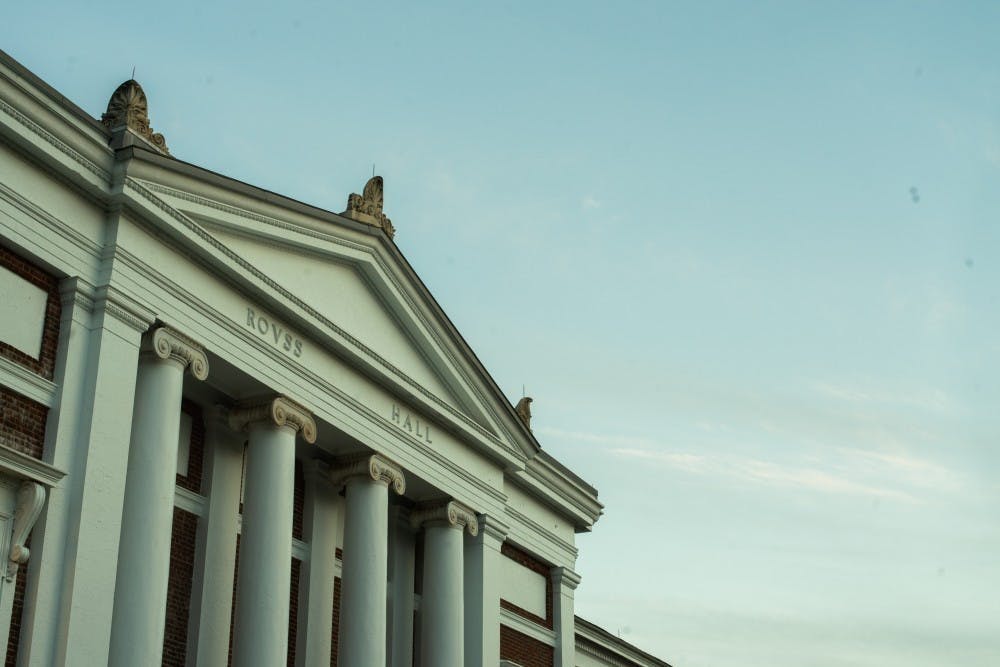During the first few weeks of fall semester, there is a palpable tension amongst third-years hoping to land selective internships in the fields of financial services or consulting. These internships are known for their challenging interview processes, which involve multiple rounds of behavioral and technical questions. In order to earn one of these sought after positions, students diligently balance info sessions, networking calls and interview preparation around their classes and other commitments.
This already daunting process can be particularly intimidating for students who come from disadvantaged backgrounds. Students coming from privileged backgrounds will have an inherent advantage at networking, as family connections help secure interviews and internships, particularly at companies reluctant to hire underclassmen. They are also more likely to have grown up in well-regarded school systems and with extracurricular resources.
It would be unfair to expect U.Va. or McIntire to fix many of these deeply rooted societal issues — too many factors are out of their control. But it would also be unfair to a substantial number of underprivileged students to concede that the University is doing its best possible job to help them start their careers. The structure of McIntire and the application process for commerce clubs only widens the disadvantage that less fortunate students have. If U.Va. were to significantly change these processes, it would go a long way in leveling the playing field.
Currently, students enter McIntire at the start of their third year. Investment banking and private equity positions will start interviewing in the spring of second year, and consulting will start within the first two months of third year. Because students are admitted to McIntire so late, and most McIntire classes are exclusive to McIntire students, students are going into these interviews with almost no relevant knowledge from their classes, outside of some introductory accounting knowledge. This means students must learn the information independently through interview preparation books, which typically can cost hundreds of dollars. It is disappointing that students, who will have already spent tens of thousands of dollars on tuition, rent and textbooks are left out on their own for the interview process due to McIntire’s late start date.
When looking at top undergraduate business schools like New York University, the University of Michigan and the University of Pennsylvania, all of these programs allow students to start taking more advanced business classes during their first two years. This levels the playing field by giving all students access to the information they need to succeed in interviews.
Another common way students prepare for interviews is through their involvement in commerce clubs. Many of these clubs provide great opportunities for students to learn technical skills, build their network and gain relevant experiences they can talk about during their interview. However, just like the industries they prepare students for, they can be notoriously selective. Some of the clubs feature acceptance rates in the single digits and include multiple rounds of interviews.
The selectivity of these clubs is not inherently bad — they should seek out intelligent and driven members who will be active contributors — however, the issue lies in the application process. The application processes begin right away, before students have accomplished anything substantial at the University. These applications tend to include some combination of a resume, test scores, essays, company pitches and case studies. It should not be difficult to see how this process favors those coming from elite high schools. The applicants whose schools had investment groups or other business clubs would easily stand out over applicants whose schools did not even have business departments. And the applicants who had paid for SAT tutoring might appear to be smarter than the students who did not have the same resources. Some connected students will even have had impressive internships in high school, which would certainly stand out on a resume.
To fix these issues, a significant overhaul of the application processes is needed. Other schools have realized this issue, like Wharton, who proposed banning clubs from asking for resumes two years ago. The best learning opportunities on Grounds should go to the most passionate and eager students and not be exclusively for those with the most impressive high school resumes.
Another interesting idea to explore can be seen at Penn State’s Nittany Lion Fund, a $8.5 million student-run hedge fund. The officers of the club run the Penn State Investment Association, which is open to everyone and requires no application. Students can join the PSIA and learn about investing, complete assignments and participate in stock pitches. By completing this process, students can earn the chance to interview for a spot in the NLF. This way, everyone learns, and even people without any background knowledge can earn a spot through dedication.
Prospective students should feel assured that the University is actively working towards equal opportunities, and many of the changes laid out in this article are within the University’s control. Last year, U.Va. accepted a record number of minorities and first-generation students. As the school continues becoming more diverse, it becomes increasingly important that the school is overly biased in favor of the privileged. These fields are known for being difficult to break into without prior internship experience, which makes the first two years at the University especially important. Given the capability to alter entire career paths, it is crucial that the University’s structure does not continue to act as a deterrent for so many students.
Thomas O’Farrell is a third-year student in the Commerce school.







